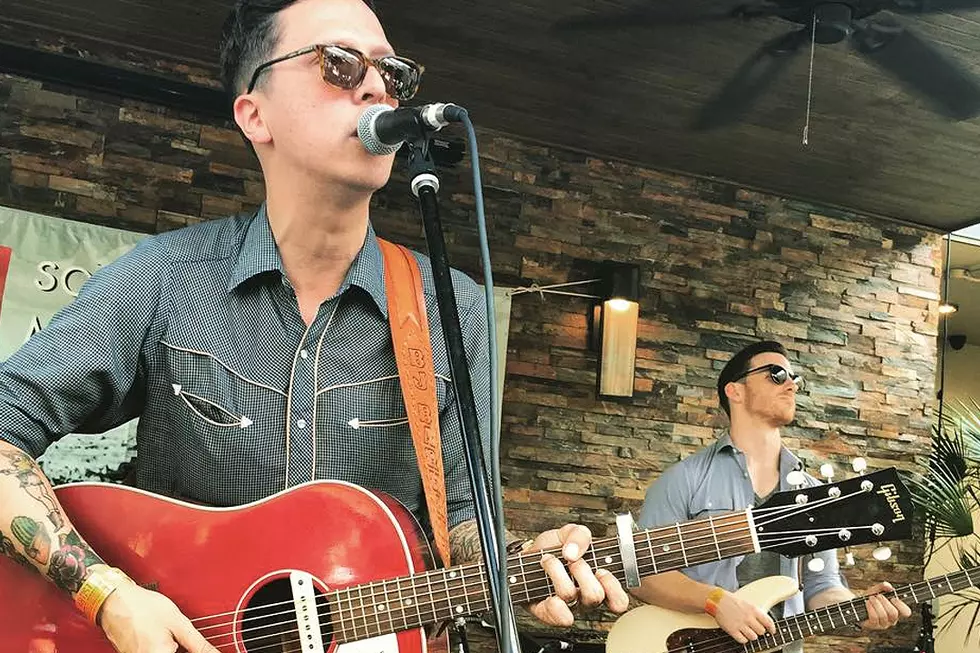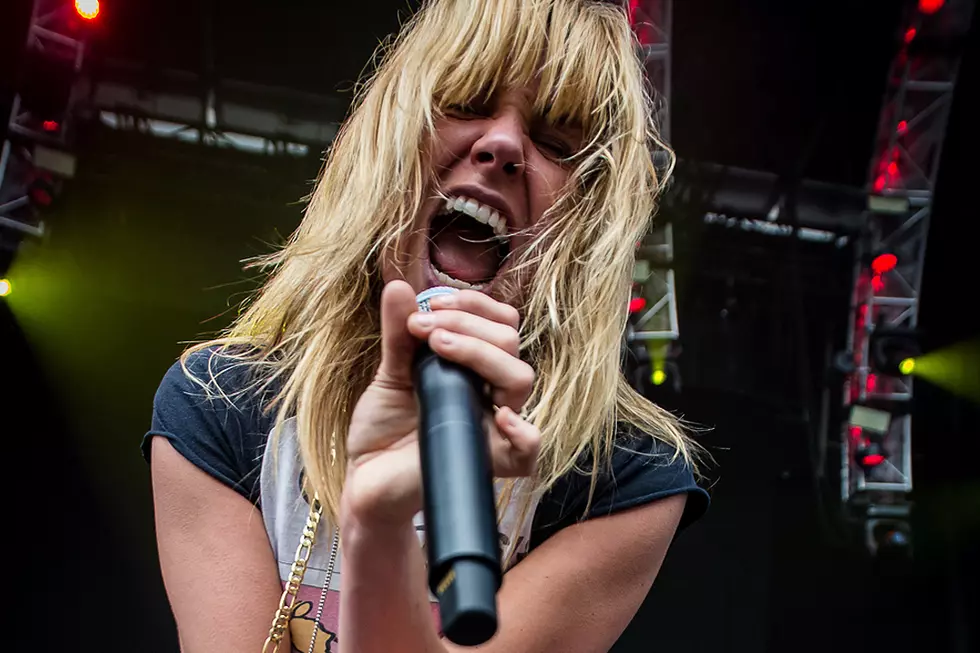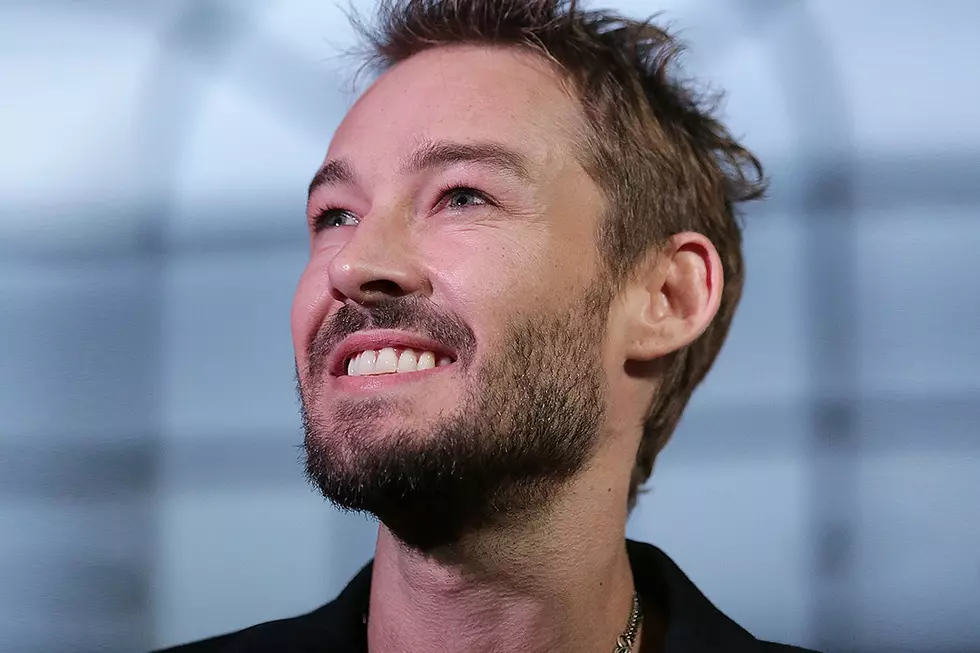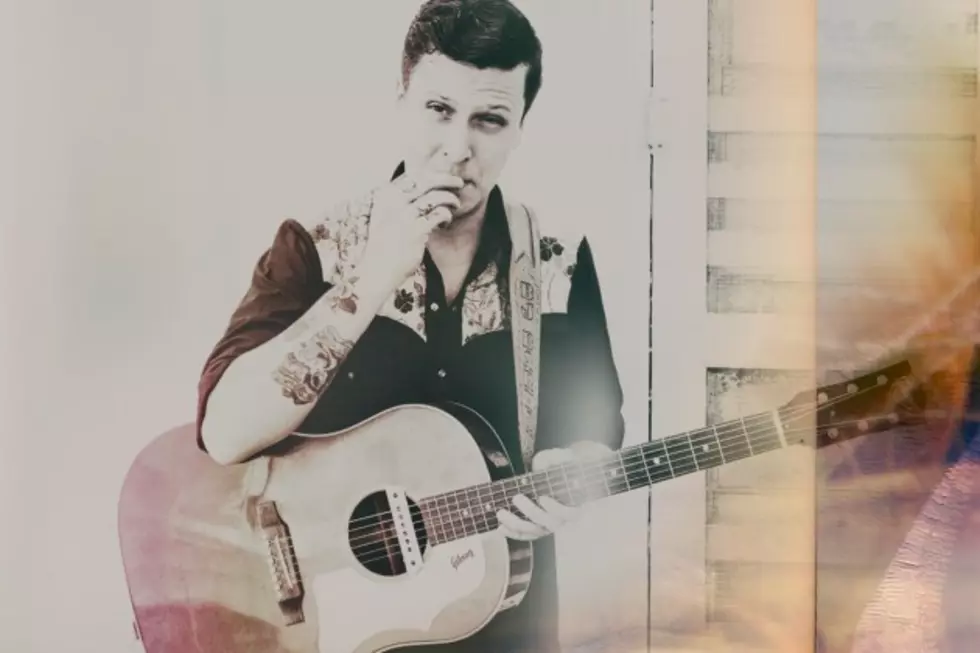
In Conversation With American Aquarium’s BJ Barham
Since releasing their debut full-length, 2006's 'Antique Hearts,' North Carolina's American Aquarium have spent the better part of their lives on the road. With each new release, the band members have never held anything back and continue giving all they got night after night.
That mentality and commitment to non-stop rock and roll stems from frontman BJ Barham, who started the band and is the "lone songwriter in the group." As American Aquarium gear up for their latest studio effort, 'Wolves' -- set for release on Feb. 3 -- Barham took some time to sit down with us for a fascinating conversation.
From the current state of the music industry ("The only way to survive an ever-changing environment is to adapt") to his personal affection for vinyl ("It serves as a tangible reminder of why you fell in love with music in the first place") -- and a few more topics thrown in for good measure -- Barham opens up about everything happening in American Aquarium's world. Check out our exclusive chat below:
Let’s start with the most current happenings with American Aquarium. Your new album, ‘Wolves,’ is set for release in February. By my count, this is American Aquarium’s eighth release. How does it feel to have the record wrapped up and ready to hit the streets?
I'm like the kid who already knows what he is getting for Christmas, but can't play with it until Christmas morning. We have had this record done since July [2014] and have just been sitting on it. I can't even begin to describe how psyched we are for our friends and fans to finally hear it. This is hands down the best work this band has done to date and we are so proud to show it to the world. Luckily, we have had the chance to test the songs out live over the past few months of touring. Playing these songs every night is the only thing that has kept us from going stir crazy. Excitement is an understatement.
How did you approach ‘Wolves’ different than ‘Antique Hearts’?
We recorded 'Antique Hearts' in 2005, and I use the word "we" very loosely. I am the only member of the current band that was even on that record. We were young and unfocused -- amateur players at best. We had only played four or five shows before we went into the studio -- a friend's garage -- to record. We did the entire record in two days. I was only 20 years old so there was this youthful excitement in those songs. You can hear it. The imperfections on that record are my favorite parts. You can hear five kids figuring s--t out through music. I look back on that record and vividly remember how pumped I was to finally be writing a record ... a real, listenable record. Something I could hold in my hand or put in my car stereo. Those songs poured out of me faster than I could write them down.
I had finally found something that I loved doing. That excited me. That challenged me. That gave me more long term goals than any four year degree ever could. I was finally able to turn a couple one liners and three chords into an actual record that my friends could listen to. You can hear the excitement, the youth, the naivety. You can hear an idea forming.
With 'Wolves,' it is the complete opposite. 'Wolves' is a declaration. A confident writer and a band that not only had a vision for a record, but the skills to make that vision actually happen. Skills that only come with a decade of f--king up, cutting sonic corners, making the wrong decisions in the studio and settling for an "ehhhh" take when you know you have a "HOLY S--T THAT IS AWESOME" one in the tank -- I have one of the best live bands on the road today backing up a group of songs that I am not only proud of now, but will be proud of 10 years from now. We recorded over 20 days at the amazing Echo Mountain Studio in Asheville, N.C. We were able to record, listen, re-record, talk about it, listen, and so on. This is the first record that we had the luxury of "going back and redoing it." I wrote 'Antique Hearts' when I was struggling to find my voice as a songwriter. It's a mixed bag of all the artists that influenced me to pick up a pen in the first place. 'Wolves' finds me at a point in my life where I have found my voice, and am extremely confident in the things that I have to say. 'Antique Hearts' was about me finding something, 'Wolves' is about me actually saying something.
So the writing process, is it a full band, collaborative thing, or is it all you?
I write all the songs in American Aquarium and bring them to the boys as very rough sketches of what the listener actually hears on a record. I like to equate our arrangement process to the human body. I bring the skeleton of the song to the table and it's just that: bare bones, words and chords. The magic really happens when the boys add the muscle, the meat, the skin. Together we turn my simple folk songs into something much bigger than all of us. If it were left to me, every song would be a 10-minute mid-tempo folk song with 18 wordy verses, one short chorus and no chance of a bridge. The guys round the songs out and add texture. They add musical substance to match the words that I write. The best part about having a six-piece band is that for an idea to stick it has to make it through six very different people. Six people that only want the best possible end product. So to answer the question, I am the lone songwriter in the group, but the arrangement aspect of the songs is a very complex group effort.
What were you listening to while you were writing ‘Wolves’?
Much like every other member of this band, I have a very wide range of musical influence and preferences. My tastes range from songwriters that most folks have never heard of to embarrassingly bad Top 40 hip-hop. Over the last decade of touring, I have been lucky enough to meet and befriend some of the most amazing and talented songwriters working today. John Moreland is at the top of his game right now. He really makes me want to be a better writer. Sturgill Simpson is getting an insane amount of radio time in our van. Jason Isbell is just a freak of nature. Joe Pug, Cory Branan, Ryan Adams, Justin Townes Earle, Taylor Goldsmith, Evan Felker, John Fullbright, Hayes Carll ... the list goes on for days. Guys that take the age old emotions and make them seem fresh. Guys that don't throw away a single line. That is what inspires me. Makes me want to be better.
'Wolves' was inspired by an amalgamation of everything I've read, listened to, seen and felt over the last few years. Our last record, 'Burn. Flicker. Die.', was a very dark record. A record about quitting what we loved doing simply because what we loved doing didn't love us back. 'Wolves,' musically and narratively, is a complete 180. I'm finally at a point in my life where I'm happy. I'm sober. I'm married. I'm able to make a living off of just writing songs and playing them with my best friends. So that is what I wrote about. I've always written about what I know and American Aquarium records very much serve as a retrospective of where I was in life when I wrote them. 'Wolves' will definitely be filed under the "happy" category. Its a record about learning that you will never have everything, but finding happiness in the things you do have. I've got my health. I've got a good woman who loves and supports what I do. I've got an amazing band that I've seen the world with. Things could be way worse.
The title-track deals with addiction, and you just mentioned "quitting things that don't love us back." How personal is that song for you?
Its extremely personal. Since I was 18 years old, I haven't went a day without a drink, or six. Beer turned to liquor, a cocktail turned to drinks straight up, whiskey turned to cocaine, cocaine turned to anything that would keep me awake all day. 'Wolves' is about multiple things sinking their teeth into you and that is what all the hard living was doing to me. I realized that I needed to stop or things were not going to end well. So I did. No rehab. No meetings. Just looking myself in the eye every morning telling myself that I don't need those things to make me function. My gal has been extremely supportive through the whole sobriety process and it has not only strengthened our relationship, but made me a better performer, a better songwriter and an overall better person.
Is addiction something you explore throughout the entire album?
It has its moments throughout the record. 'Family Problems' is another song where I talk about the hereditary substance abuse that plagues not only my family, but almost every family in the country. Everyone has that uncle, or that cousin, that was or is spinning out of control. For me it was my Uncle Benny. I was seeing too much of myself in him and I knew that something had to be done. He died in a hotel parking lot, in a car, alone. I did not want that to be how the story ended for me.
Let's take a trip back to 2006. Can you walk me through the beginnings of American Aquarium?
American Aquarium started far before 2006 and Amos Baynes will never let me forget that. I say 2006 for two reasons. First, 2006 was the year we put out our first record ['Antique Hearts'] and the band actually started taking a permanent form. Secondly, it was the first year we started touring. A five day tour of North Carolina turned into a two week run through the Southeast, which led to a full U.S. summer tour, which led to all of us quitting our jobs and school, packing into a 2002 Dodge 15-passenger van, and hitting that road for the rest of our life. Members came and went, but in 2008 we started touring with the current configuration of American Aquarium and things got better and better every year. Exponential growth. One show at a time. That is how it has lasted this long.
Did you ever think the band would still be around in 2015?
I have known for a very long time that I wanted to write songs for the rest of my life. When the first stranger -- a non-friend or family member -- bought my record, that sparked the fire. When we would travel to cities that none of us had ever been to before and there were people there singing the words, buying our merch, that stoked the fire even more. Fast forward to current day: We have the greatest fanbase ever, we still like each other, and we continue to encourage and inspire each other to be better people and musicians. In 2006 I may not have thought it would last this long, but today I couldn't imagine myself doing anything else with any other group of people.
You mentioned Jason Isbell earlier as an influence. What was it like working with him on ‘Burn. Flicker. Die.’? What was the relationship like between him and the band in the studio?
Jason has always been a really great friend to me and the band. He's always let us open up shows, supported the band when we came through Muscle Shoals in the early days and just been really positive toward us at times when not a lot of people were. It's always nice getting to work with people that you look up to and respect as much as we do Jason. He and his band are what every band in the country should aspire to be -- they did it the right way. When Jason signed on to do 'Burn. Flicker. Die.' we knew we had to bring a really great record into the studio. I am so proud of those songs and the work we did in Muscle Shoals. Jason added a sense of professionalism to the recording process that we had never felt before. In the studio, Jason was always extremely positive and always pushed us to try new things and follow our instincts. It really gave us a lot of confidence in what we were doing. It also never hurts a record when Jason Isbell and Amanda Shires sing all the background vocals.
What's it like having the same lineup since 2008?
It has been amazing, but it hasn't always been like that. Pre-2008 we had 26 personnel changes in two-and-a-half years. Reasons for folks quitting ranged from moving on to focus on their professional endeavors (big kid jobs), personal differences with each other (I once had a snare drum slammed over my head), or coming to the realization that they weren't really cut out for being in a band that tours 250-plus days every year. This job most certainly isn't for everyone and I feel extremely fortunate to have found six guys that were willing to stick through the indescribable lows with me to get to where we are today. We have witnessed each other's lowest and highest moments. Proud to call these guys brothers.
‘Burn. Flicker. Die.’ was going to be the band’s last album. Why did you guys decide that was going to be it?
It was supposed to be the swan song. It was my breakup record with the road. It was to serve as a definitive stopping point for a band that had spent seven years sleeping on floors, maxing out credit cards, and playing every s--thole this country had to offer, with absolutely nothing to show for it but some mean substance abuse problems and countless broken relationships. If anyone ever questioned why the band broke up, I could just hand them that record.
What happened to make you change your mind?
Luckily, the record about us never making it turned out to be the most successful record to date and completely changed the trajectory of the band. Where as pre-'BFD,' we were playing to just the bartenders in some towns, but with the release of 'Burn. Flicker. Die.' we were now selling out small theaters. Fifty turned to 100, 100 to 200, then shows started selling out. Our Facebook fans more than quintupled from 4,000 in 2012 to over 22,000 currently, all because of that record. Bartenders would buy me free drinks because I was "that guy from that band." Everyone pays their cellphone bills on time these days. That's something that just couldn't have happened before 'Burn. Flicker. Die.'
With ‘Wolves’ almost out to the masses, have you already started thinking about its follow-up?
I'm really all about soaking it in these days. I've gotten ahead of myself most of my life and I have never been able to fully enjoy the now. I've got a few songs I'm kicking around, but for the most part I want to put every bit of energy I have into touring on this record. I have never been more proud of a batch of songs in my life. Making this record changed me as a human being and I can't wait to see other people's reactions to it. The band is so rejuvenated at this point, it feels like deja vu. It feels like the first time we got into the van together. The first time we played music together. Just a lot of electricity. All I can say about a follow-up is that it will happen when it is ready to happen.
I recently saw you guys open for Justin Townes Earle in New York City, and you were amazing. One of the many things I really respected about you, as a band, was the fact that you sold vinyl at the show. How important is vinyl to you personally?
Vinyl is how I was first introduced to music. I have vivid memories of Saturday nights in my parents' room listening to Waylon Jennings and the Jackson 5, Hank Williams Sr. and Otis Redding. I was raised on country music and soul music, and every single bit of it was on vinyl. It was such an experience. Taking the record out of the sleeve, pouring over every inch of the album covers, reading every liner note about every session player, putting the vinyl on the player and lowering the needle, and then ... magic. At 6 or 7 years old, that was the coolest thing in the world.
About 90-percent of my current music collection is on vinyl. It was very important to me and the boys to release records on vinyl. It is way more expensive of a process and it takes almost double the time to manufacture compared to CDs, but it is totally worth it. With the coming of the digital age and MP3s, the tangible record -- CD, tapes, vinyl -- only serves as an artifact of the music for some some people, and vinyl is just a much cooler artifact. After you burn a CD or download the MP3, the piece of plastic it came on is worthless. With vinyl it's different. You want to keep it. You want to show it off. It serves as a tangible reminder of why you fell in love with music in the first place. I hope our fans enjoy it just as much as we do.
As a musician, as a songwriter, as someone who has been busting his ass to get to where he is today, what’s your take on the current state of the music industry? It seems like everyone wants to talk about platinum albums this and Spotify that. From your perspective, how do you feel about the industry?
Oh Spotify. I think we may be the only band in the history of bands that doesn't have a problem with Spotify. Sure, I'd rather folks buy the record, but above all else I'd rather people come to shows, sing the songs and leave actually feeling what we do live. We have seen that a large majority of folks who get our music for free -- or in this case pennies -- are some of the most diehard fans when it comes to supporting us live.
As far as the traditional music industry goes, it isn't just dying, it's already dead. The only way to survive an ever-changing environment is to adapt. From my experience, the bands that can adapt are the bands that survive. The old model of "start a band, get discovered, sign a record deal, get rich and famous" just doesn't exist anymore. We knew very early on that if we wanted to be a successful band that we would have to be a touring band. Some folks are willing to do whatever the powers that be tell them to do in order to get famous. I could never do that, it's just not in my blood. Plus, I don't have the jawline or six-pack to make it in pop country music. We knew we had to live in a van and take it to the people because the people sure as hell weren't going to come to us. That is the downfall for a lot bands these days. They refuse to tour. You can't just make an amazing product anymore. You have to make an amazing product and then tell everyone that you have an amazing product and prove to them that it is amazing. Some really great bands refuse to tour. They still live with the hope that President Megabucks from $$$ Records is going to stumble across them practicing in their mom's garage and sign them to a record deal and send them on tour with Taylor Swift. It just doesn't happen like that anymore.
The new model, very simply, is work for it. We play 250-plus shows a year, have done so for almost a decade and we are still nobodies in the grand hierarchy of the music food chain, but we have carved out our own little space. We survive. Every fan we make, every CD or shirt we sell, we survive to do it again the next day. Either we are willingly stubborn or blissfully ignorant, but that's all we need. We pay our bills. We have homes. We eat three meals a day. We have fans across the world that think we are the f--king Rolling Stones. That is making it. Carve out a piece of this f--ked up business for yourself and go to bed every night knowing that you did it the right way. Not the easy way, the right way.
I wrote my songs and traveled the world playing those songs with my best friends. I may never be famous, but I'll always be able to go to bed at night knowing that I worked my ass off for everything I have and everything I will ever have, and that is enough for me.
American Aquarium's 'Wolves' hits store shelves on Feb. 3 and was successfully funded via PledgeMusic last year. Get details on the new record at American Aquarium's official website here.
More From Diffuser.fm

